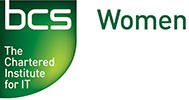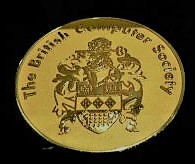
Augusta Ada King, Countess of Lovelace was an English mathematician and writer, chiefly known for her work on Charles Babbage's proposed mechanical general-purpose computer, the Analytical Engine. She was the first to recognise that the machine had applications beyond pure calculation.

The analytical engine was a proposed digital mechanical general-purpose computer designed by English mathematician and computer pioneer Charles Babbage. It was first described in 1837 as the successor to Babbage's difference engine, which was a design for a simpler mechanical calculator.

Howard Hathaway Aiken was an American physicist and a pioneer in computing, being the original conceptual designer behind IBM's Harvard Mark I computer.

Stephen Byram Furber is a British computer scientist, mathematician and hardware engineer, and Emeritus ICL Professor of Computer Engineering in the Department of Computer Science at the University of Manchester, UK. After completing his education at the University of Cambridge, he spent the 1980s at Acorn Computers, where he was a principal designer of the BBC Micro and the ARM 32-bit RISC microprocessor. As of 2023, over 250 billion ARM chips have been manufactured, powering much of the world's mobile computing and embedded systems, everything from sensors to smartphones to servers.

The British Computer Society (BCS), branded BCS, The Chartered Institute for IT, since 2009, is a professional body and a learned society that represents those working in information technology (IT), computing, software engineering and computer science, both in the United Kingdom and internationally. Founded in 1957, BCS has played an important role in educating and nurturing IT professionals, computer scientists, software engineers, computer engineers, upholding the profession, accrediting chartered IT professional status, and creating a global community active in promoting and furthering the field and practice of computing.

Grady Booch is an American software engineer, best known for developing the Unified Modeling Language (UML) with Ivar Jacobson and James Rumbaugh. He is recognized internationally for his innovative work in software architecture, software engineering, and collaborative development environments.

Samson Abramsky is Professor of Computer Science at University College London. He was previously the Christopher Strachey Professor of Computing at Wolfson College, Oxford, from 2000 to 2021.
Ian Tremere Foster is a New Zealand-American computer scientist. He is a distinguished fellow, senior scientist, and director of the Data Science and Learning division at Argonne National Laboratory, and a professor in the department of computer science at the University of Chicago.

Ian Robert Horrocks is a professor of computer science at the University of Oxford in the UK and a Fellow of Oriel College, Oxford. His research focuses on knowledge representation and reasoning, particularly ontology languages, description logic and optimised tableaux decision procedures.

BCSWomen is a Specialist Group of the British Computer Society, The Chartered Institute for IT, that provides networking opportunities for all BCS professional women working in IT around the world, as well as mentoring and encouraging girls and women to enter or return to IT as a career. Founded by Dr Sue Black, as of March 2020 the Chair of BCSWomen is Andrea Palmer. BCSWomen has the aim of supporting women working in and considering a career in Information Technology.

The Turing Talk, previously known as the Turing Lecture, is an annual award lecture delivered by a noted speaker on the subject of Computer Science. Sponsored and co-hosted by the Institution of Engineering and Technology (IET) and the British Computer Society, the talk has been delivered at different locations in the United Kingdom annually since 1999. Venues for the talk have included Savoy Place, the Royal Institution in London, Cardiff University, The University of Manchester, Belfast City Hall and the University of Glasgow. The main talk is preluded with an insightful speaker, who performs an opening act for the main event.

Karen Ida Boalth Spärck Jones was a self-taught programmer and a pioneering British computer scientist responsible for the concept of inverse document frequency (IDF), a technology that underlies most modern search engines. She was an advocate for women in computer science, her slogan being, "Computing is too important to be left to men." In 2019, The New York Times published her belated obituary in its series Overlooked, calling her "a pioneer of computer science for work combining statistics and linguistics, and an advocate for women in the field." From 2008, to recognize her achievements in the fields of information retrieval (IR) and natural language processing (NLP), the Karen Spärck Jones Award is awarded to a new recipient with outstanding research in one or both of her fields.

Doron Swade MBE, born 1944, is a museum curator and author, specialising in the history of computing. He is especially known for his work on the computer pioneer Charles Babbage and his Difference Engine.

Marta Zofia Kwiatkowska is a Polish theoretical computer scientist based in the United Kingdom.
The Royal Society Milner Award, formally the Royal Society Milner Award and Lecture, is awarded annually by the Royal Society, a London-based learned society, for "outstanding achievement in computer science by a European researcher". The award is supported by Microsoft Research and is named in honour of Robin Milner, a prolific pioneer in computer science who, among other contributions, designed LCF and the programming language ML.

The Thrilling Adventures of Lovelace and Babbage: The (Mostly) True Story of the First Computer is a steampunk graphic novel written and drawn by Sydney Padua. It features Ada Lovelace and Charles Babbage in an alternative universe where they have successfully built an Analytical Engine and use it to "fight crime".
The Association for Women in Computing (AWC) is a professional organization for women in computing. It was founded in 1978 in Washington, D.C., and is a member of the Institute for Certification of Computing Professionals (ICCP).

The Ada Lovelace Award is given in honor of the English mathematician and computer programmer, Ada Lovelace, by the Association for Women in Computing. Founded in 1981, as the Service Award, which was given to Thelma Estrin, it was named the Augusta Ada Lovelace Award, the following year.
The Roger Needham award is a prize given scientists who are recognised for important contributions made to computer science research The British Computer Society established an annual Roger Needham Award in honour of Roger Needham in 2004. It is a £5000 prize is presented to an individual for making "a distinguished research contribution in computer science by a UK-based researcher within ten years of their PhD." The award is funded by Microsoft Research. The winner of the prize has an opportunity to give a public lecture.















